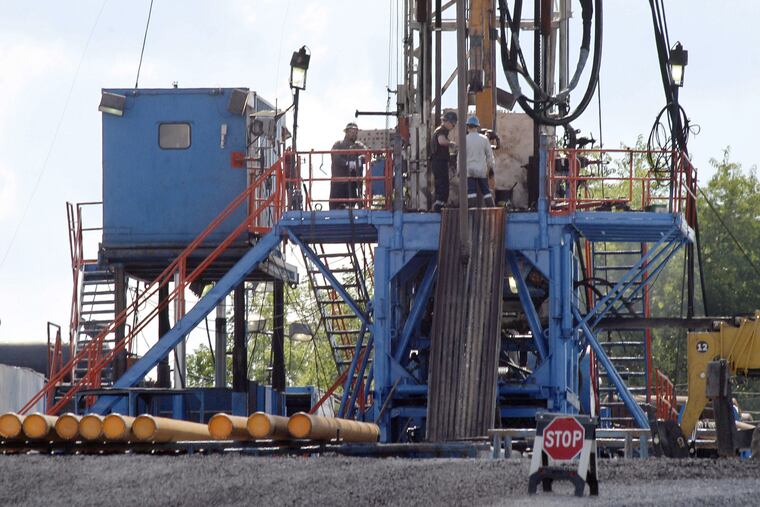Gov. Wolf should move forward with methane regulations | Opinion
In 2014, Colorado became the first state to regulate methane from existing sources. It's time for Pennsylvania to do the same.

Methane is the second-most prevalent greenhouse gas after carbon dioxide. Pennsylvania's natural gas industry is a major methane emitter. Recently Gov. Wolf took steps to reduce methane leakage from new natural gas industry sources. Now he must keep his promise to reduce methane leakage from existing sources.
Methane is the primary component of natural gas, and the oil and gas industry accounts for the largest share of U.S. methane emissions. Its heat-trapping qualities are about 86 times more potent than carbon dioxide over a 20-year period although it stays in the atmosphere for a shorter length of time. Methane is responsible for about 25% of current global warming, according to the Environmental Defense Fund.
As the second-largest natural gas producing state, Pennsylvania's methane emissions have a significant impact on climate change. The state's oil and gas operators leak over 520,000 tons of methane each year, causing the same near-term climate pollution as 11 coal-fired power plants, according to a recent Environmental Defense Fund analysis.
Methane can leak into the atmosphere at well pads, storage tanks, compressor stations, processing facilities, and along pipelines. These unintended emissions are due primarily to leaky, outdated, and malfunctioning equipment. Leaks, however, can be significantly reduced through the use of state-of-the-art equipment, and more frequent inspections.
Reducing methane leakage from natural gas operations is "…one of the essential steps needed to reduce global greenhouse gas emissions and reduce the impacts of climate change," according to the Pennsylvania Department of Environmental Protection.
In January 2016, Gov. Wolf announced his methane reduction strategy for unconventional natural gas drilling operations. This strategy included the development of new and revised permits (GP-5 and GP-5A) for new sources of methane emissions and the development of regulations for existing sources. At that time the Wolf administration estimated that permits for new sources would be ready by the second half of 2016 and the regulations for existing sources would be proposed by early- to mid-2017.
Last month, the Wolf administration finally announced the issuance of new and revised permits for new sources of methane emissions. The administration would not commit to a timeline for the issuance of regulations for existing sources. My subsequent conversations with administration officials failed to confirm whether these regulations would be promulgated at all.
Over 11,000 unconventional gas wells have been drilled in Pennsylvania since 2004. And while it's important to address methane leakage from new sources, it's more important to address the leakage from these existing wells along with their storage tanks, compressor stations, processing facilities, and pipelines.This older equipment is more prone to leakage than new equipment.
In 2014, Colorado became the first state to regulate methane from existing sources. It's time for Pennsylvania to do the same.
State Rep. Greg Vitali (D., Delaware, Montgomery) represents the 166th Legislative District. E-mail: gvitali@pahouse.net